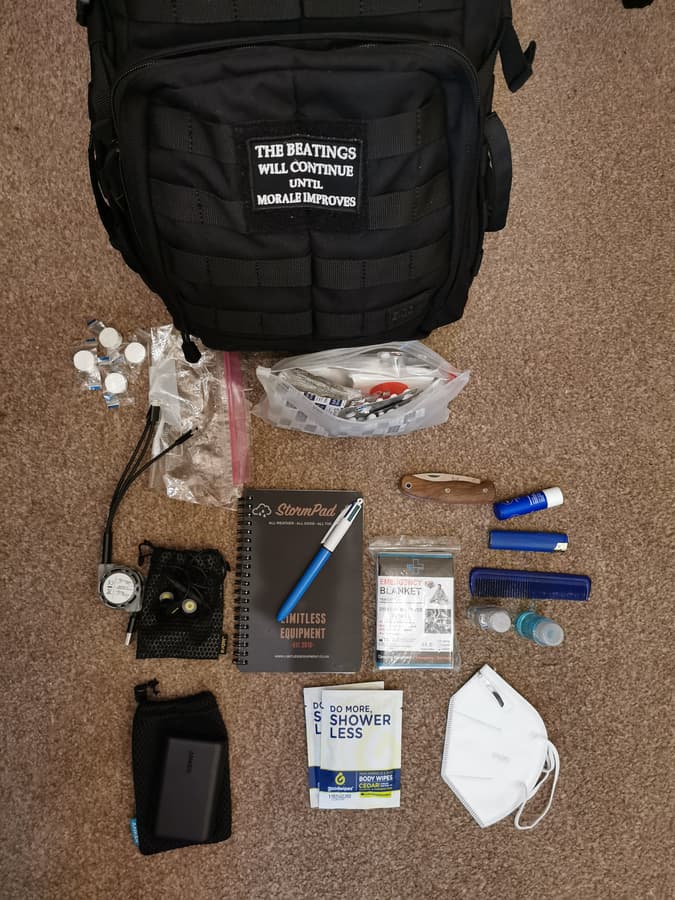UKSeb
Joined May 2020
Kits (1)
 2 likes
0 copies
2 likes
0 copies

Seb's EDC
EDC carry, split in 2 sets: keychain tools and what I keep in my 5.11 Rush 12 bag.
Discussions
Reply to: News for week of 2023-01-23 (all current event convos go here).
Posted January 28, 2023
Reply to: News roundup for Fri, Apr 22, 2022
Posted April 22, 2022
Reply to: UK only. Martin Lewis warns of likely Civil Unrest
Posted April 12, 2022
Reply to: Three memes about preparedness
Posted September 24, 2021
Reply to: Urban bugging out
Posted September 21, 2021
Reply to: Urban bugging out
Posted September 19, 2021
Reply to: News roundup for Tue, Sep 7, 2021
Posted September 8, 2021
Reply to: News roundup for Tue, Sep 7, 2021
Posted September 7, 2021
Reply to: (Official discussion) Hardtack
Posted June 30, 2021
Reply to: NRG-5 Emergency Rations: What do you think?
Posted June 24, 2021
Reply to: NRG-5 Emergency Rations: What do you think?
Posted April 6, 2021
Reply to: Lets see your EDC
Posted February 15, 2021
Reply to: Lets see your EDC
Posted February 14, 2021
Reply to: What does prepping look like in your area of the world?
Posted January 25, 2021
Reply to: What does prepping look like in your area of the world?
Posted January 24, 2021
Reply to: News for week of 2023-01-23 (all current event convos go here).
Posted January 28, 2023
Reply to: News roundup for Fri, Apr 22, 2022
Posted April 22, 2022
Reply to: UK only. Martin Lewis warns of likely Civil Unrest
Posted April 12, 2022
Reply to: Diarrhea
Posted October 17, 2021
Reply to: Three memes about preparedness
Posted September 24, 2021
Reply to: Urban bugging out
Posted September 21, 2021
Reply to: Urban bugging out
Posted September 19, 2021
Reply to: News roundup for Tue, Sep 7, 2021
Posted September 8, 2021
Reply to: News roundup for Tue, Sep 7, 2021
Posted September 7, 2021
Reply to: (Official discussion) Hardtack
Posted June 30, 2021
Reply to: NRG-5 Emergency Rations: What do you think?
Posted June 24, 2021
Reply to: NRG-5 Emergency Rations: What do you think?
Posted April 6, 2021
Reply to: Lets see your EDC
Posted February 15, 2021
Reply to: Lets see your EDC
Posted February 14, 2021
Reply to: What does prepping look like in your area of the world?
Posted January 25, 2021
Reply to: What does prepping look like in your area of the world?
Posted January 24, 2021